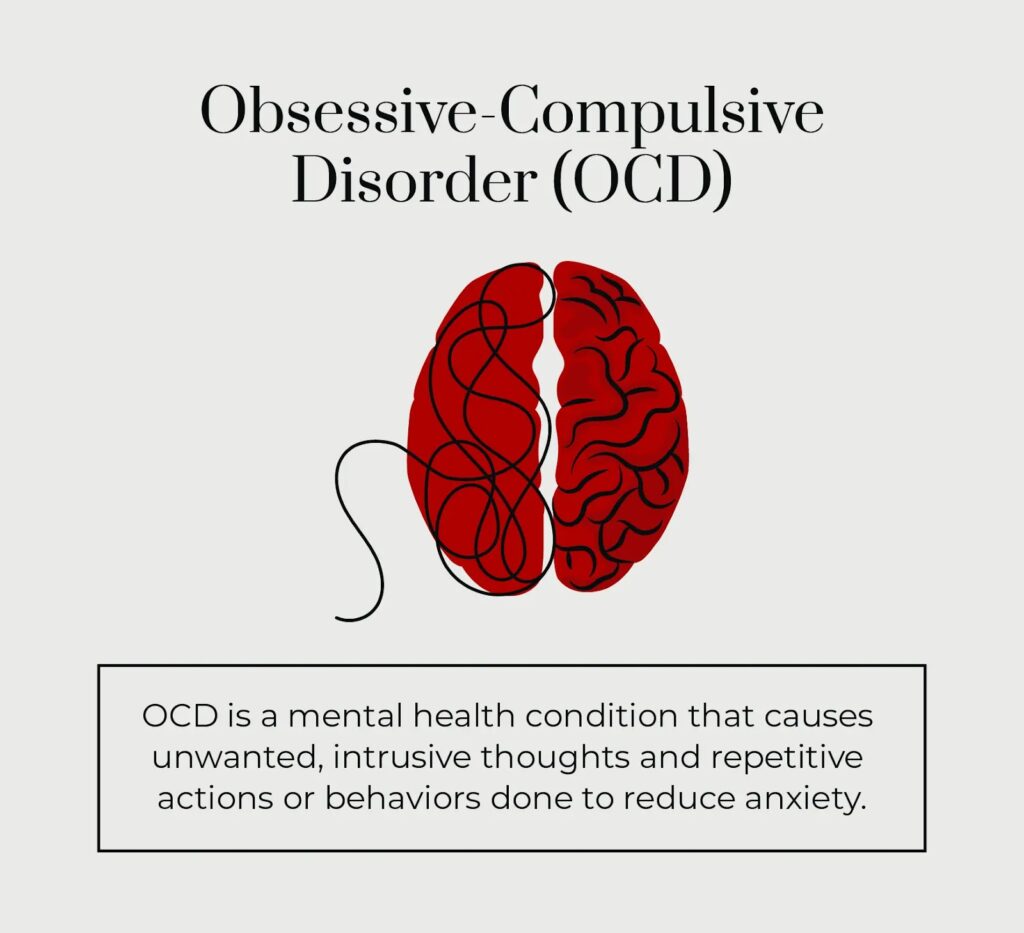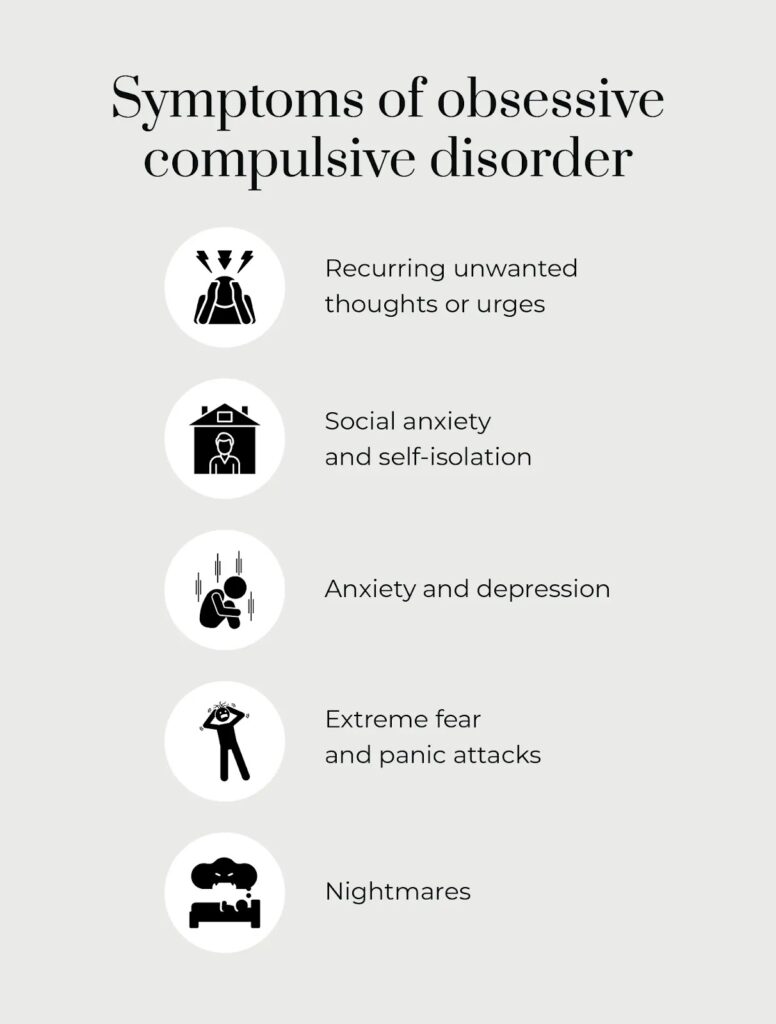The VA ratings for obsessive-compulsive disorder (OCD) are 0, 10, 30, 50, 70, or 100 percent. For veterans to receive a VA rating for OCD, they must be diagnosed with OCD, prove a service connection, and show that a medical nexus exists between their service and OCD symptoms.
Stone Rose Law assists veterans with the full range of service-connected disabilities, including claims for OCD. Whether you are making your initial claim for OCD, a supplemental claim, or appealing a VA claim denial, our experienced veterans’ claims attorneys can help.
To learn more, call us at (480) 498-8998 to schedule a free consultation.
If the VA approves your benefits claim for obsessive-compulsive disorder, then it will assign you a VA disability rating under its Schedule of Ratings for Mental Disorders. You can receive an OCD VA rating of 0, 10, 30, 50, 70, or 100 percent.
The rating you receive will depend on factors including the severity of your symptoms, their effects on how you perform occupational tasks, and social impairment in your life. Here are the criteria for how the VA rates each disability rating level.
| VA Rating | Symptoms |
|---|---|
| 0% | Your symptoms do not affect your day-to-day life activities. This rating level does not qualify you for monthly compensation benefits. However, it entitles you to receive other VA benefits, including health care and mental health benefits. |
| 10% | Your symptoms affect your work efficiency, but only when subject to high stress. Your symptoms can be controlled by medication. |
| 30% | Your symptoms may include depression, anxiety, or panic attacks that can sometimes affect your ability to work. You can become forgetful and have trouble sleeping. These symptoms can also harm your personal relationships. |
| 50% | At this level, you are experiencing more severe symptoms, including weekly panic attacks, flattened affect, mood swings, and impaired ability to engage in abstract thinking. You have difficulty understanding complex instructions, completing tasks, and using your short-term memory. These symptoms regularly interfere with your ability to work and negatively affect your ability to engage in day-to-day activities. |
| 70% | Your symptoms include obsessive rituals, near-continuous panic attacks, and difficulty controlling impulsive behaviors. These symptoms interfere with your daily life activities and can make it difficult or impossible to hold a job. You could experience problems talking clearly and occasionally have suicidal thoughts. |
| 100% | Total disability. You are experiencing delusions, hallucinations, and are at risk of harming yourself or others. You may have serious difficulty thinking and talking, trouble keeping track of where and when you are, and trouble remembering the names of family members and even your own name. You could also have problems performing day-to-day activities as simple as maintaining personal hygiene. |
Even if you do not have a 100% disability rating for obsessive-compulsive disorder, if your disability keeps you from being able to hold substantially gainful employment, you can still receive total disability benefits for OCD through Total Disability Individual Unemployability (TDIU).
To qualify for schedular TDIU, you must have either of the following:
In some cases, the VA may allow you to receive VA disability benefits under TDIU if your symptoms are such that you cannot hold substantially gainful employment although you do not meet the requirements for schedular TDIU.
This is a consideration the VA will consider on a case-by-case basis. You do not need to apply for extraschedular TDIU.
OCD is an anxiety disorder. The VA classifies OCD under Diagnostic Code 9404 as a form of mental health disorder. Intense stress or psychological trauma experiences during your time in service, like exposure to combat, being injured, or witnessing distressing events, can cause OCD or worsen existing OCD symptoms.
OCD manifests itself through intrusive thoughts or obsessions and repetitive behaviors or compulsions to deal with the underlying sense of anxiety. These uncontrolled thoughts and compulsive responses can severely impact your ability to work and participate in daily life activities to the point where OCD can become disabling.
OCD can occur in combination with other mental health conditions that the VA recognizes as disabilities, like depression and post-traumatic stress disorder (PTSD), which can have overlapping symptoms.

The obsessions you may experience from OCD are generally known by mental health professionals. They include fear of contamination or germs, difficulty coping with uncertainty, fear of making mistakes, an intense desire for order and perfection, and even aggressive thoughts toward others and yourself.
Specific symptoms of obsessive compulsive disorder include:

The obsessive behaviors that veterans who have developed OCD can display include:
If you develop symptoms of OCD because of your military service, it is important to receive an official medical diagnosis and treatment through counseling and possibly medications. Without treatment, your condition may worsen.
Filing an initial claim for obsessive compulsive disorder follows the same procedure for other VA disabilities that are not presumptive ones. At the outset, you must have served on active duty for at least part of your military service and not have been dishonorably discharged.
If you meet these criteria, you must establish a service connection to your current diagnosis. You can do this through a direct service connection or a secondary connection.
To establish a direct service connection to your OCD disability, you need to show the following:
When preparing your supporting claim documentation, keeping a journal of the symptoms you are experiencing can be helpful. Having coworkers, family members, and close friends prepare “buddy letters” can also give the VA examiner who reviews your claim a better sense of what you are going through.
You can also request your treating physician or mental health professional to complete the VA Disability Benefits Questionnaire for Mental Health Disorders. Although it is not a required part of your initial benefits claim, this form includes specific questions that help the VA determine how severe your OCD condition is.
In some circumstances, you can establish a service connection for obsessive-compulsive behaviors you were experiencing before you joined the military if your military service made your OCD condition worse. This is not common, however. OCD is usually a barrier to military service unless your condition is so mild that it is easily managed.
If you have another disability that you already have a VA disability rating for, and this disability triggers your obsessive-compulsive behaviors, then this prior disability can support a benefits claim for OCD.
Some VA disabilities that can be the source of an OCD secondary service are anxiety, depression, and PTSD.
You will use VA Form 21-526EZ to fill out your claim for disability benefits. You can submit this form online, by mail to the VA Evidence Intake Center, or in person at your nearest VA regional office.
When the VA reviews your claim, it may schedule you for a Compensation and Pension (C&P) exam. The purpose of this exam is to allow the VA to gather more information to evaluate whether to approve your benefits claim and, if it does, to decide what disability rating to assign to you.
During the exam, a VA examiner will review your supporting claim documentation, ask you questions about your condition and symptoms, and possibly have you undergo a physical examination and some tests. An experienced VA disability benefits lawyer, like one of ours at Stone Rose Law, can help you understand what will occur at your C&P exam and help you prepare for it.
The VA does not always require a C&P exam. However, if the VA schedules you for one, it is important that you be there on the appointed day and time. Missing your exam can lead to delays in processing your claim or even a claim denial.
The VA can deny an initial benefits claim for many reasons. Sometimes, the VA needs more evidence before it can approve a claim. Other times, the veteran making the application can make a mistake. And in some cases, the VA can make a mistake when processing the claim.
If the VA denies your claim for OCD VA disability benefits, you have multiple options to appeal the denial. These include:
At Stone Rose Law, our VA-accredited attorneys give you affordable, high-quality veterans appeals legal assistance for all kinds of VA disability benefits claims, including claims for OCD.
A Stone Rose VA disability lawyer can help you prepare your disability claim, monitor your claim status, and consult with you before disability examinations.
If the VA denies your initial OCD benefits claim, our VA benefits law firm will assign a VA disability appeals lawyer to help you pursue a VA appeal with the Board of Veterans Appeals while providing free representation on a contingency fee basis.
You won’t pay any fees to your VA disability lawyer unless we win your case. For more information about how one of our VA disability lawyers can help, request a free consultation at (480) 498-8998. You can also reach us online.